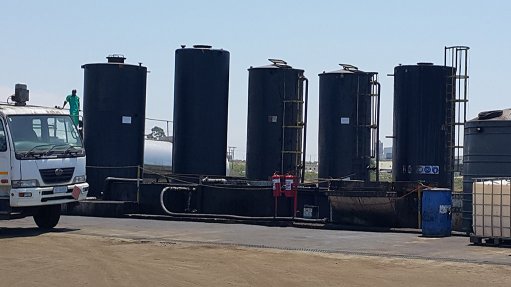
RECOVERY FACILITY The Cato Ridge facility is permitted to process hazardous solids, liquids and sludges, which includes solvents, oils and oils sludges, paint sludges, solids, acids and bases
Waste management service provider Oricol Environmental Services earlier this month opened its new resource recovery facility in Cato Ridge, KwaZulu-Natal.
The facility has been certified to the international standard ISO 14001:2015. It specifies the requirements for an environmental management system that an organisation can use to enhance its environmental performance. The certification was officially presented to Oricol Environmental Services by the South African Bureau of Standards at the opening of the facility.
The Cato Ridge facility is permitted to process hazardous solids, liquids and sludges, which includes solvents, oils and oils sludges, paint sludges, solids, acids and bases.
Constructed as a resource recovery centre, operations at the facility will focus on producing homogenous fuels from liquid and sludge waste material.
For instance, this will enable cement producer InterCement to substitute a certain amount of coal with this fuel to supply energy to its cement kiln near Port Shepstone.
“The net result will be a reduction in coal usage, and waste previously destined for landfill will now be used as a coal replacement, coal being a finite resource,” said Oricol founder and chief executive Richard Sanders. He noted that it is another way in which the company is turning waste into a resource.
The facility will also operate as an additional resource recovery depot that renders liquid and solid waste suitable for recovery or safe disposal.
The company’s other resource recovery depots are based in Johannesburg, Port Elizabeth, Uitenhage and Durban.
“The ISO 14001:2015 accreditation is important for Oricol because it helps our company improve its environmental performance through using resources more efficiently and reduces waste, giving us a competitive advantage and the trust of our stakeholders,” concluded Sanders.